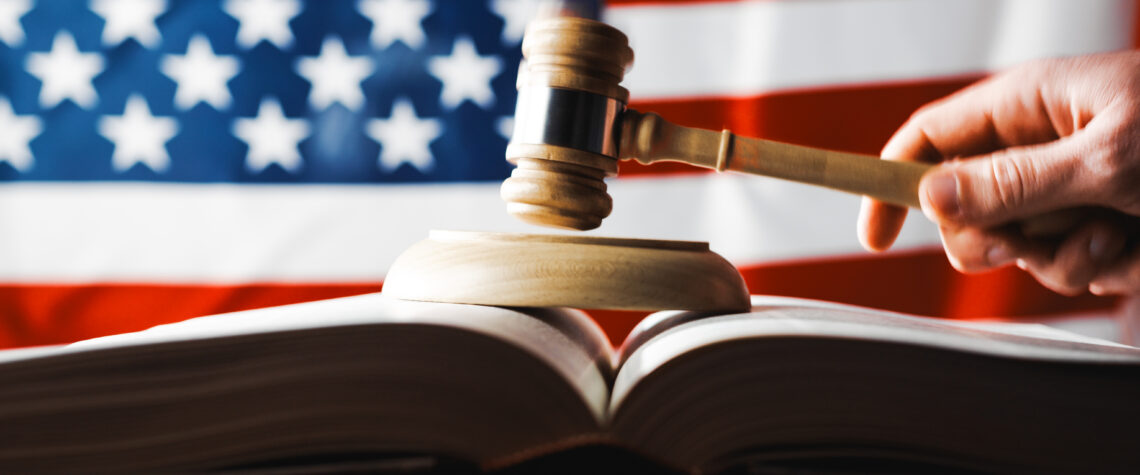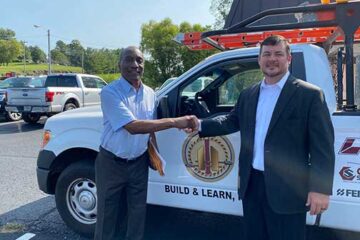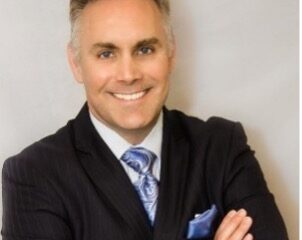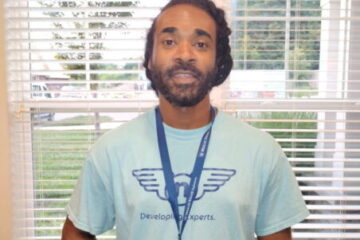Many of the rights secured by the Constitution of the United States are facing persistent attack nowadays. One local attorney stands in the gap for religious freedom assured by the Constitution.
Beginning very early in his practice, Mr. Crain received calls for help from clients facing all sorts of constitutional challenges to their exercise of religious liberty: parents facing prosecution for merely wanting to homeschool their children consistent with their religious faith; ministries that faced arbitrary zoning restrictions on their church schools; churches facing internal struggles over self-governance; and myriad other religious issues affecting individuals, families, and ministries.
While a case that Mr. Crain handled led to legalization of homeschooling in Tennessee, the scope of other religious liberty issues affecting individuals and churches continues
to expand. His dedication to First Amendment issues, particularly the rights of individuals to be free of religious discrimination, led Crain to litigate a broad spectrum of constitutional issues on a national level before The United States Supreme Court, several Circuit Courts of Appeal, and several state Supreme Courts, including Tennessee, Massachusetts, North Carolina, and California.
As a nationally recognized constitutional lawyer and a frequent lecturer and commentator, Crain has litigated, debated, and widely practiced constitutional law, especially in the realm of parental rights and religious liberty. His work in this area also opened the door for a number of ministry and nonprofit clients to operate their ministries over the years, including an adoption ministry called Small World Adoptions, Teen Challenge International, and the Church Law Institute, a non-profit legal and educational ministry serving churches all across the United States.
Crain remembers: “before reading Francis Schaeffer’s works, I had never thought about the preeminence of God in the law: ‘The law must be anchored in moral absolutes which trace their origin back to God’s preeminence’: ‘all authority is from God’ (Romans 13) and that truth transcends the Constitution. It is where we get the notion of inalienable rights.”
Two specific scriptural precepts serve as anchors in Crain’s life testimony: “The steps of the righteous man are ordered by the LORD, and He delights in his way. Though he fall, he shall not be utterly cast down: for the LORD upholds him with His hand” (Psalm 37:23-24) and secondly, “whenever you turn to the right or to the left, your ears will hear this command behind you: ‘This is the way. Walk in it’” (Isaiah 30:21). Crain learned how to incorporate his faith into his legal practice and how to serve ministries that serve the Lord— top priorities.
Today, while his law practice has expanded to a number of areas, he continues to devote a major portion of his time representing churches on a wide variety of legal issues. Crain explains, “The legal landscape involving churches is changing dramatically. As more major denominations shift their focus to accommodate changing norms in our society, serious rifts afflict their member churches.”
“Theological schisms are never pretty.” Crain cites as an example, the United Methodist Church—America’s third-largest religious body—undergoing major changes over its teachings on sexuality. Crain has represented over a dozen Methodist congregations in Tennessee that have voted to leave the denomination over its rejection of traditional scriptural teachings concerning marriage and human sexuality. “The problem is that when these smaller congregations vote to pull out, the denomination claims it now owns all of the church’s property. Some of these congregations date back to the early 1800’s, but in the 1960’s, when they added the word “United” to their names, they did not realize that they were assigning all right, title, and ownership of their sanctuary to the denomination.”
“I represent one church now in a lawsuit that has been pending for over eleven years. We are seeing a rise in such cases, when with just a little proactive legal advice and planning on the front end, many such cases could be avoided.”
Crain’s approach to his law practice mirrors his personal faith: “Respect in this profession from judges and fellow members of the bar must be earned, and once obtained, must be carefully guarded.” The highest Source of all says it this way: “A good name is more desirable than great riches; to be esteemed is better than silver or gold” (Proverb 22:1).
Crain summarizes: “I believe God has blessed me over the years with some of the most
courageous clients a lawyer can have. Their humility and courage have always born witness to their faith in Christ.”
Sheila E. Moss: author of Living to Matter: Mothers, Singles, and the Weary and Broken; Interrupting Women: Ten Conversations with Jesus; and international publications derived from teaching Bible and Christian ethics in Africa, Ukraine, Venezuela, and England; teacher of Bible classes for 35+ years; mother of five adult children and grandmother of eleven grandchildren














